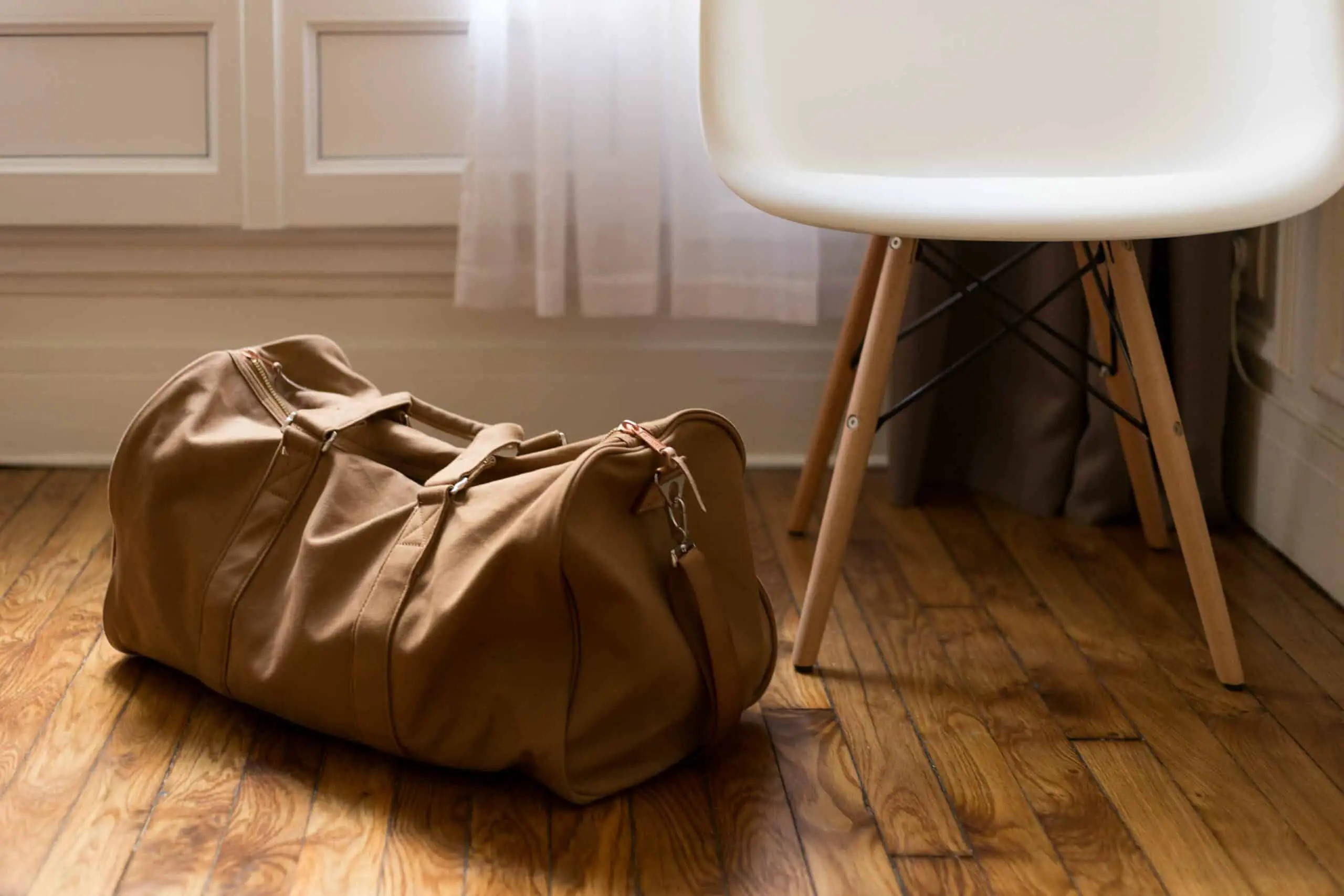Air travel is a miracle of modernity that has made our lives so much easier. However, despite the convenience of modern travel, it is not without its stressors: such as baggage. It is widely known that there are weight and size limits for carry-on and check-in luggage, but is there a limit to how small your check-in baggage can be?
While most airlines have strict policies on how heavy check-in luggage can be, there’s no policy limiting how small check-in luggage can be. Guidelines generally dictate that luggage containing items restricted for carry-on must be checked in. There are no restrictions on checking in small luggage.
The rest of this article will discuss luggage restrictions as it pertains to weight and size. We will explore the circumstances that can lead to the checking-in of small luggage and how you can avoid unwanted baggage fees that result from this. Keep reading to learn more.
Why Would a Small Amount of Luggage Need To Be Checked In?
Aside from carry-on luggage being restricted to only one piece, there are several circumstances in which even a small piece of luggage will need to be checked in. Some are a matter of airline policy, while others are a matter of personal comfort and preference.
A small amount of luggage would need to be checked in if:
- The luggage contains items restricted for carry-on baggage.
- You are traveling with sports equipment.
- You prefer to keep your carry-on luggage minimal.
- The bags may not exceed the weight limit for carry-on but exceeds the size limit.
Let’s examine each of these situations in greater detail.
The Luggage Contains Items Restricted for Carry-On Luggage

Some items that are restricted in carry-on luggage are allowed for check-in luggage. Some examples of these are:
- Dry cell batteries
- Bladed items such as scissors, Swiss army knives, even tweezers and nail cutters
- Replicas of weapons or ammunition
- Electronic devices without an off option
- Aerosols and liquids (Some airlines allow liquids but restrict the volume to less than 100mL or 3.4 fl. oz.)
Even something as harmless as a water gun that shoots bubbles is restricted for in-cabin luggage. Once you are found carrying any of the above in your carry-on luggage, you will be forced to choose between having the restricted item confiscated or having your luggage checked in.
In this scenario, since your baggage allowance wasn’t part of your ticket purchase, your unplanned check-in baggage might be deemed “extra bags”. This would lead to you incurring fees starting at $50 for every pound or kilo of excess weight. The fee is even higher for international flights. Most people opt to have the restricted item confiscated rather than pay the extra fees.
You Are Traveling With Sports Equipment
Sports equipment is widely known to be restricted for in-cabin luggage. However, it’s worth emphasizing that even if you are traveling with only a tennis racket, you will need to have it checked in.
It might surprise you to know that even ping-pong balls are prohibited as hand luggage. This is owing to the fact that ping-pong balls are classified as highly flammable.
You Prefer To Keep Your Carry-On Luggage Minimal
Sometimes even a small piece of luggage can be a burden when you have to keep it in tow for every stretch of your trip. Flights with multiple layovers can take their toll, and having to wheel around luggage every time you need to go to the restroom adds to the stress of travel.
Some people prefer to have minimal luggage and will check in luggage they cannot carry on their backs or one arm — even if that piece of luggage very well qualifies as cabin luggage. As long as you pay the fees, the airline isn’t going to grill you on why you would want to check in something so small. Airport personnel have reported checking in luggage no bigger than a lady’s purse.
The Luggage May Not Exceed the Weight Limit for Carry-On but Exceeds the Size Limit
Some people fret about the weight limit and forget to consider the size limit of their luggage. Airports have no shortage of passengers trying to argue that their luggage is under the weight limit for in-cabin luggage. However, their luggage’s size and shape disqualify it as carry-on luggage.
Most airlines have bag-sizers posted at their gates. This allows you to check if your bag has the allowed dimensions for that specific airline’s aircraft cabin storage unit. Even if your bag is under the weight limit, it will have to be checked in if your luggage exceeds the permitted measurements.
The general rule is that if it doesn’t fit in the aircraft’s cabin storage unit, it must be checked in to meet standard flight safety requirements.
For a more elaborate guide on luggage size guides, you may find this article helpful.
How To Avoid Unplanned Baggage Fees
It is highly stressful for travelers to pay baggage fees that weren’t planned for or anticipated. While the fees may seem outrageous, airlines must strictly abide by their policies to encourage compliance.
To avoid these air travel pitfalls, consider the following tips:
- Always check airline policies before ticket purchase. Know what items are prohibited for in-cabin luggage to avoid confiscation or unexpected excess baggage fees.
- Make sure you are paying for the correct baggage allowance. Some people pay for a specific baggage allowance, confident that their luggage will not exceed the weight limit. Unfortunately, they realize too late that what they paid for restricts their luggage to only one piece.
- Always securely pack small check-in luggage. When traveling with small bags or boxes, always ensure they are securely packed, especially if the items are valuable or fragile. Also, always declare valuables and fragile items.
- Have your bags weighed and measured before your flight. Having your luggage weighed and measured before your flight can prevent the inconvenience and expense of excess baggage.
Final Thoughts
A small amount of luggage can be checked in as long as it doesn’t violate airline policies regarding restricted or prohibited items. While airline policies are not as clear about the limit on how small check-in luggage can be, personal discretion should be taken in ensuring that small luggage is securely packed. This helps avoid damage to the contents within.
Sources
- LuggagePros.Com: Airline Luggage Restrictions
- IndiGo: Things Not Allowed In Flight
- Travelpro: Guide to Luggage Size



